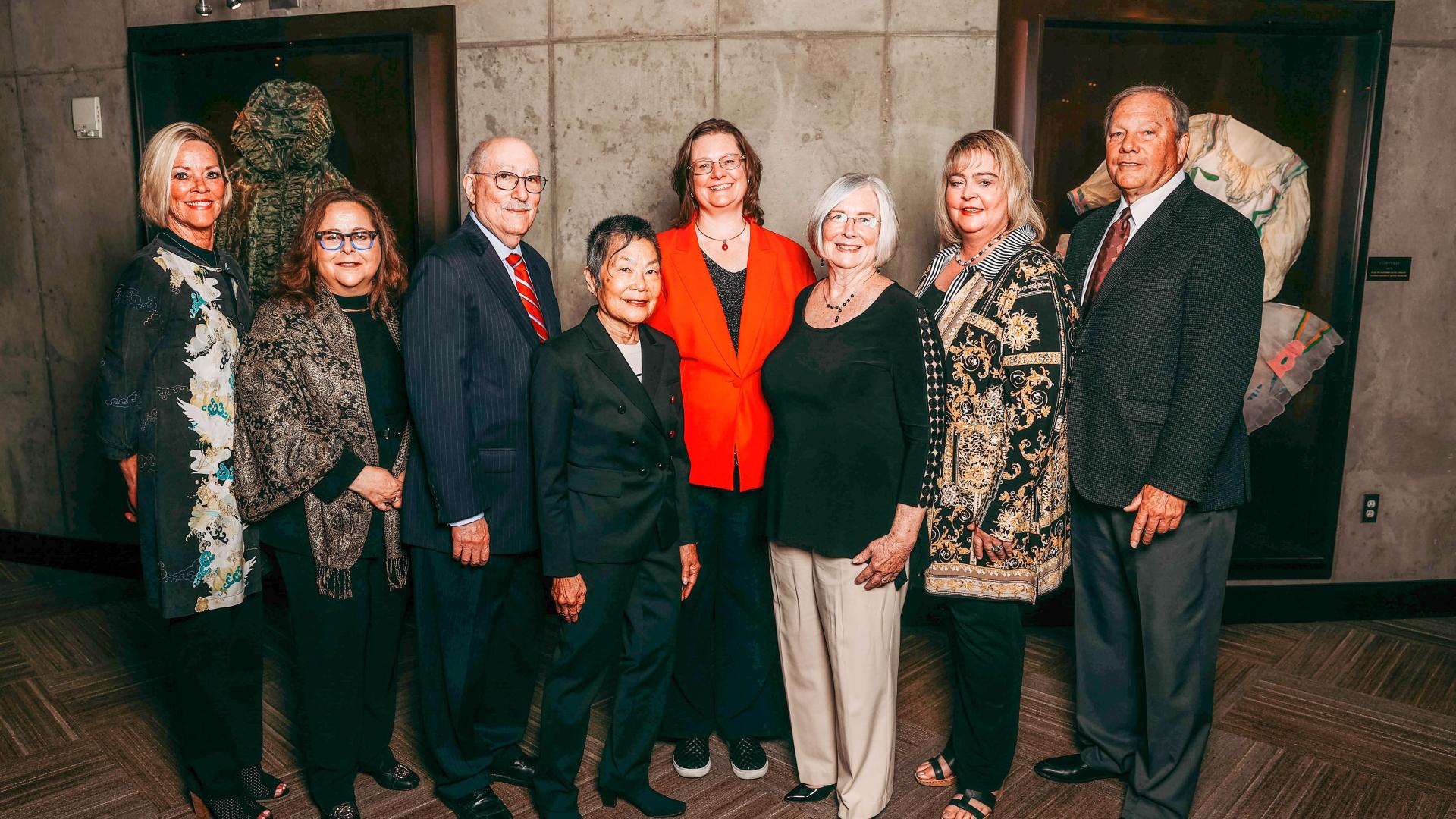Washington University and Johns Hopkins University Researchers Win Helen Keller Prize
Recognized for Groundbreaking Research to Save Sight
Written By: BrightFocus Editorial Staff
Recognized for Groundbreaking Research to Save Sight
Written By: BrightFocus Editorial Staff

May 4, 2022 (DENVER, CO)—Washington University in St. Louis professors Mae Gordon, PhD, and Michael Kass, MD, received the 2022 Helen Keller Prize for Vision Research yesterday. The annual prize, presented by BrightFocus Foundation and the Helen Keller Foundation for Research and Education, honors scientific discovery and excellence and is chosen by an independent awards committee.
“Glaucoma progressively and permanently destroys peripheral vision. Tragically, it often goes unnoticed until becoming quite advanced,” said Robert Morris, MD, President of the Helen Keller Foundation for Research and Education, noting, “By skillfully designing and managing a clinical trial lasting for over twenty years, these Helen Keller Laureates ultimately found the answers to how glaucoma development can be predicted and prevented.”
BrightFocus President and CEO Stacy Pagos Haller stated, “The work of Drs. Gordon, Kass and West is a bold testament to the power of science to save sight. The Keller Prize recognizes the ways Drs. Gordon and Kass have transformed our understanding and treatment of glaucoma and how Dr. West curbed blindness around the world.”
The two researchers were recognized for their landmark work leading to a significant understanding of the natural progression and effective treatment of glaucoma, which drove improvements in public health for vision disease.
“I am humbled and thrilled to share the 2022 Helen Keller Prize for Vision Research with Dr. Michael A. Kass,” said Dr. Gordon. “We never dreamed that our research, that started with a simple question, would change clinical management of ocular hypertension worldwide. This prize honors every study participant, technician and clinician who contributed to this research over the last two decades.”
“I am delighted to receive the Helen Keller Prize for Vision Research. It is particularly meaningful to me that my mentor, Dr. Bernard Becker, was the second recipient of this prize. It must be emphasized that large-scale clinical trials depend on the talent and hard work of hundreds of individuals. Their contributions should be recognized,” said Dr. Kass.
Johns Hopkins University’s Sheila West, PhD, PharmD, the 2020 Keller Laureate, was recognized in person at the event for her seminal work to curb blindness in developing nations. Dr. West, whose award ceremony was cancelled by the pandemic, led research which heavily shaped the World Health Organization’s guidelines for reducing trachoma, a leading cause of preventable blindness triggered by lack of access to clean water and sanitation. The 2020 Prize presentation was delayed by the COVID pandemic.
“I am thrilled to receive the 2020 Helen Keller Prize for Vision Research and to join the ranks of such luminaries as John Dowling, Alfred Sommer, Jeremy Nathans, King Wai Yau and Hugh Taylor. The Prize is especially meaningful to me because it is rewarding research in the eye diseases that afflict the most disadvantaged populations in the world,” said Dr. West. The awards were presented at a dinner and ceremony in Denver held in conjunction with the annual meeting of the Association for Research in Vision and Ophthalmology (ARVO), the largest vision research conference in the world.
About BrightFocus Foundation
BrightFocus Foundation is a premier global nonprofit funder of research and provides expert information to defeat Alzheimer’s, macular degeneration and glaucoma. BrightFocus is currently supporting a $65 million global portfolio of more than 260 projects. International grant applications are now available on brightfocus.org.
About Helen Keller Foundation for Research and Education
Based on the legacy of Helen Keller, the Helen Keller Foundation for Research and Education strives to prevent blindness and deafness by advancing research and education. The Foundation aspires to be a leader in integrating sight, speech and hearing research with the greater biomedical research community, creating and coordinating a peer-reviewed, worldwide network of investigators and institutions.
Contacts:
Kaci Baez
Vice President, Integrated Marketing and Communications, BrightFocus Foundation
(301) 556-9370
kbaez@brightfocus.org
Laura Beckwith
Helen Keller Foundation for Research and Education
laura_beckwith@bellsouth.net
BrightFocus Foundation is a premier global nonprofit funder of research to defeat Alzheimer’s, macular degeneration, and glaucoma. Since its inception more than 50 years ago, BrightFocus and its flagship research programs—Alzheimer’s Disease Research, Macular Degeneration Research, and National Glaucoma Research—has awarded more than $300 million in research grants to scientists around the world, catalyzing thousands of scientific breakthroughs, life-enhancing treatments, and diagnostic tools. We also share the latest research findings, expert information, and resources to empower the millions impacted by these devastating diseases. Learn more at brightfocus.org.
Disclaimer: The information provided here is a public service of BrightFocus Foundation and is not intended to constitute medical advice. Please consult your physician for personalized medical, dietary, and/or exercise advice. Any medications or supplements should only be taken under medical supervision. BrightFocus Foundation does not endorse any medical products or therapies.
Donate Now to Fund Critical Research
Your gift today can help drive innovation in Alzheimer's, macular degeneration, and glaucoma research. By donating, you’ll support life-changing research and provide valuable resources for those affected by these devastating diseases. Give now to fuel hope and bring us closer to finding cures.